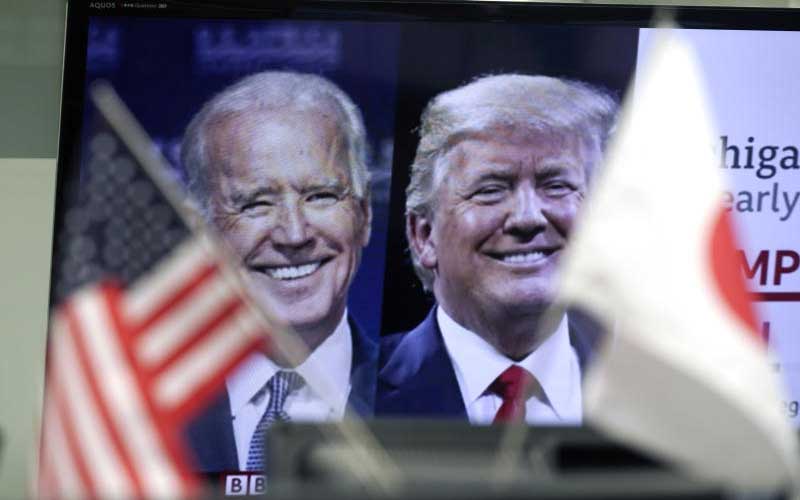×
The Standard e-Paper
Home To Bold Columnists

A Japanese and a US flags are placed in front of a TV monitor showing a news program live broadcasting on the US presidential election between President Donald Trump, right, and former Vice President Joe Biden, left, at a foreign exchange dealing company Wednesday, Nov. 4, 2020, in Tokyo. [AP]
Democrats and Republicans girded Wednesday for a legal showdown to decide the winner of the tight presidential race between Republican Donald Trump and Democrat Joe Biden.